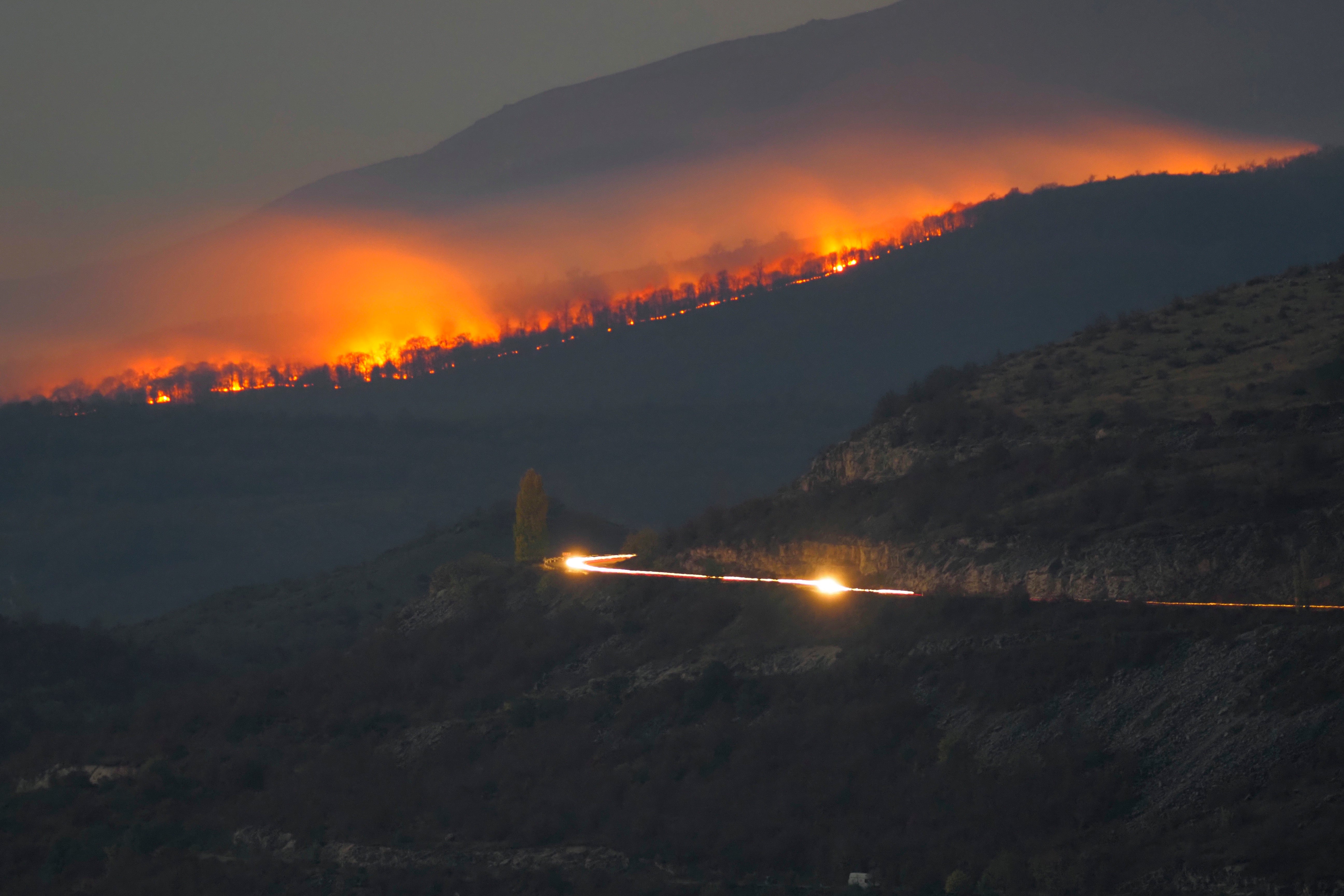Fighting over separatist Nagorno-Karabakh region continues
Fighting over the separatist territory of Nagorno-Karabakh entered sixth week on Sunday, with Armenian and Azerbaijani forces blaming each other for new attacks

Fighting over the separatist territory of Nagorno-Karabakh entered sixth week on Sunday, with Armenian and Azerbaijani forces blaming each other for new attacks.
Nagorno-Karabakh officials accused Azerabaijan of targeting the town of Martuni with military aviation and several other areas with missile strikes overnight. Azerbaijani forces continued shelling the region's civilian settlements in the morning, the Nagorno-Karabakh military said.
Azerbaijan's Defense Ministry, in turn, accused Armenian forces of firing at the positions of the Azerbaijani army on the Armenia-Azerbaijan state border. The ministry also said Armenian forces were shelling settlements in the regions of Terter and Aghjabedi.
Nagorno-Karabakh lies within Azerbaijan but has been under the control of ethnic Armenian forces backed by Armenia since a war there ended in 1994. The latest outburst of hostilities began Sept. 27 and left hundreds — if not thousands — dead, marking the worst escalation of the decades-old conflict between the two ex-Soviet nations in over quarter century.
According to Nagorno-Karabakh officials, 1,166 of their troops and 45 civilians have been killed. Azerbaijani authorities haven’t disclosed their military losses, but say the fighting has killed at least 91 civilians and wounded 400. Russian President Vladimir Putin has said, according to Moscow’s information, the actual death toll was significantly higher and nearing 5,000.
The fighting has continued after three cease-fires failed to hold and despite calls for peace from around the globe.
In the most recent attempt to defuse tensions, the foreign ministers of Armenia and Azerbaijan met Friday in Geneva for a day of talks brokered by Russia, the United States and France, co-chairs of the so-called Minsk Group of the Organization for Security and Cooperation in Europe that tries to mediate the conflict.
The talks concluded with the two sides agreeing they “will not deliberately target civilian populations or non-military objects in accordance with international humanitarian law,” but the agreement was quickly challenged by reports of shelling of civilian settlements.
Azerbaijani President Ilham Aliyev has said to end hostilities Armenian forces must withdraw from Nagorno-Karabakh. He repeatedly criticized the Minsk Group for not producing progress and insisted that Azerbaijan has the right to reclaim its territory by force since international mediators have failed.
Azerbaijani troops, which have relied on strike drones and long-range rocket systems supplied by Turkey, have reclaimed control of several regions on the fringes of Nagorno-Karabakh and pressed their offensive into the separatist territory from the south.
On Thursday, Nagorno-Karabakh’s separatist leader said Azerbaijani troops had advanced to within 5 kilometers ( 3 miles) of the strategically located town of Shushi just south of the region’s capital, Stepanakert, which sits on the main road linking Nagorno-Karabakh with Armenia.
Aliyev met Sunday with the Turkish Foreign Minister Mevlut Cavusoglu in Baku and said that if negotiations don't secure Armenia's withdrawal, “we will continue to restore our territorial integrity by any means and, as I said, we will go to the end.”
___
Associated Press writers Daria Litvinova in Moscow and Aida Sultanova in London contributed to this report.
Bookmark popover
Removed from bookmarks